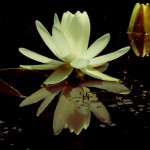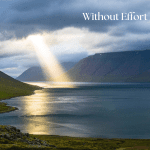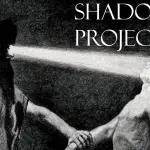
(Today’s article is by guest writer Tony Wolf. For a brief bio, see below.)
Poetic Faiths are those new religions that based on a skeptical, scientific worldview, but go on to ask “now what?” They tend towards:
- Rationalism/naturalism
- Creativity/artistry
- An open-source ethos
- Anti-authoritarianism
They are, in various permutations, simultaneously post-theistic and post-atheistic; beginning with the premise that there is no literal supernatural and then honoring the actual power of myth, symbolism, etc. in the human psyche, and therefore in the real world. It’s Tolkien’s theory of mythopoeia applied to the creation of embodied philosophies.
“Poetic Faith” is a positive descriptor (nontheistic religion being a negative descriptor) and, I think, rather more elegant than the academic terms that have been offered so far (“invented religion” – again, all religions are invented – “hyperreal religion” – say what? – etc.)
“Faith” is both colloquial and an accurate description of what one might actually have faith in; not supernaturalism, but in those unquantifiable human ideals identified as being worthy of devotion. The fact that the faith is “poetic” – i.e., the subject of artistic invention – is built right into the term.
Essentially, it’s just a matter of applying Coleridge’s original insight – procuring “for these shadows of imagination that willing suspension of disbelief for the moment, which constitutes poetic faith” – to the matter of religion, understanding, again, that all religions are works of fiction (art).
There were individual outliers in the late 19th century – notably Oscar Wilde’s speculations about the “Confraternity of the Faithless” – and later some relevant “spiritual experiments” by early 20th century occultists and utopian counter-culturalists (Austin Osman Spare, Order of Woodcraft Chivalry, Kindred of the Kibbo Kift et al) but for most practical purposes Poetic Faith is a post-’60s phenomenon.
The most obvious examples would be various branches of (or at least individual approaches to) neoPaganism; basically, those that see gods, magic etc. in psychological and artistic terms rather than as literally supernatural forces, a perspective that can be specifically traced back at least as far as the early 1970s (see Margot Adler’s Drawing Down the Moon).
The Poetic Faith perspective is that religions are inherently fictional, it’s just that some fictions are worth taking far more seriously than others. When one suspends disbelief and enters a state of Poetic Faith, via ritual or other means, one is seeking to experience a conscious, actually meaningful symbolic action; a deep sense of immersion within/communion with a signification, towards inspiring positive change within oneself and/or in the wider world.
Thus, a Poetic Faith is an embodied and aestheticized worldview in action. When the ritual becomes rote, you change the ritual.
__________
Learn about Membership in the Spiritual Naturalist Society
The Spiritual Naturalist Society works to spread awareness of spiritual naturalism as a way of life, develop its thought and practice, and help bring together like-minded practitioners in fellowship.
SNS strives to include diverse voices within the spectrum of naturalistic spirituality. Authors will vary in their opinions, terms, and outlook. The views of no single author therefore necessarily reflect those of all Spiritual Naturalists or of SNS.
__________
Bio: Tony Wolf (Council Member) is a New Zealand citizen and US resident. He is an author, producer, teacher, antiquarian and creator. A born and raised atheist, he developed a strong intellectual interest in the phenomenon of belief as a young teenager and began creating experimental, artistic “poetic faiths” during the late 1980s. Tony served as the Cultural Fighting Styles Designer for the Lord of the Rings feature film trilogy (2001-2003) and has taught performance masterclasses throughout Europe, North America and Australasia. His novels include the popular Suffrajitsu trilogy (2015) and The Life and Fantastical “Crimes” of Spring Heeled Jack (2020) and he co-produced and directed the independent documentaries Bartitsu: the Lost Martial Art of Sherlock Holmes (2011) and No Man Shall Protect Us: The Hidden History of the Suffragette Bodyguards (2018). In recent years, Tony’s essays, lectures and online courses on the themes of poetic faith, secular ritual and “hidden history” have been featured via Morbid Anatomy, Atlas Obscura, OnlySky Media and Reimagine.

















